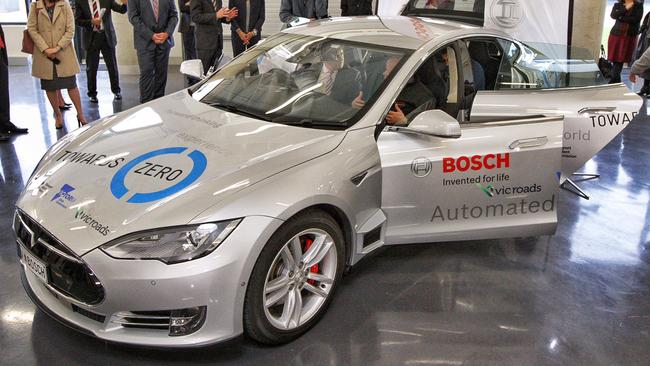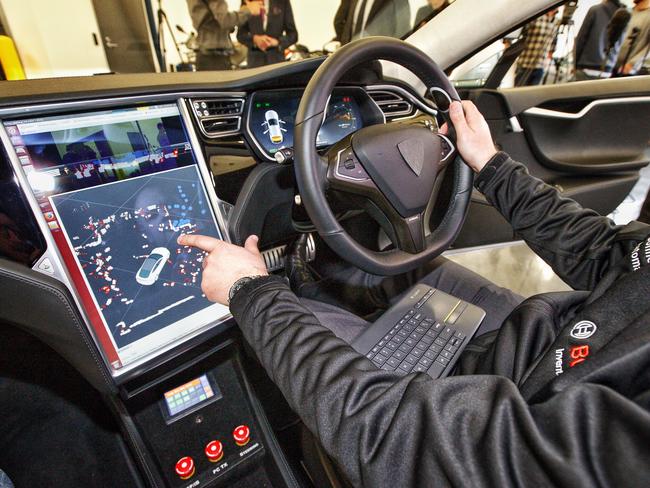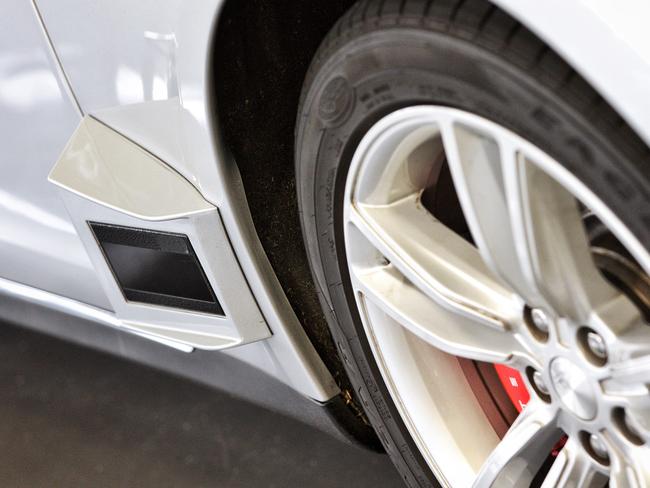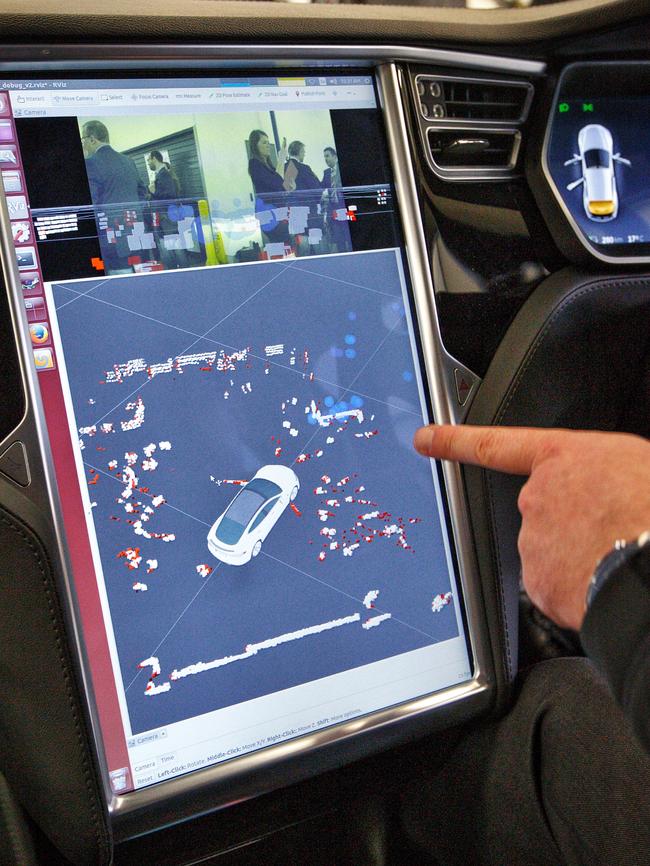Driverless car built in Melbourne by Bosch engineers at Clayton is ready for the road
A DRIVERLESS car built in Melbourne will hit the road this weekend amid predictions the futuristic technology will be the norm in as little as a decade.

VIC News
Don't miss out on the headlines from VIC News. Followed categories will be added to My News.
A DRIVERLESS car built in Melbourne will hit the road this weekend amid predictions the futuristic technology will be the norm in as little as a decade.
Dozens of engineers at Bosch in Clayton have installed dozens of radars, sensors and cameras in a Tesla Model S which they say is capable of safely driving itself.
Bosch president Gavin Smith believes the Australian-first car — with computing power that “would probably put a spaceship on the moon” — can eliminate driver error and slash Victoria’s road toll.
The State Government is planning for driverless or semi-automated cars to hit the state’s roads by 2025 and Mr Smith said similar versions of Bosch’s prototype could be on the market then.
It comes as Infrastructure Victoria calls for a major investigation of the technology, arguing it will have “the most profound effect on the way Victorians travel”.
“We have commissioned modelling that suggests driverless vehicles and/or transport pricing could dwarf the effect of any single major transport project,” its draft 30-year blueprint said.
The future of driving is being tested in Melbourne in highly advanced cars that are designed to save lives. #7News https://t.co/NM5fQcN2vN
— 7 News Melbourne (@7NewsMelbourne) October 5, 2016



Roads Minister Luke Donnellan said the Transport Accident Commission had already partnered with Bosch to the tune of $1.2 million.
“It is a magnificent vehicle that has been developed locally,” he said.
“By removing human error from the equation, self-driving vehicles will play a critical role in reducing deaths and serious injuries on Victorian roads.”
He said the testing was also important for VicRoads to see how existing road infrastructure, such as traffic lights and electronic speed signs, could eventually communicate with cars.
“Cars will probably talk to each other first before they actually talk to the infrastructure,” Mr Donnellan said.
Mr Smith said 45 people had built the car over nine months and that “under the covers, it’s all new”.
He said the “laboratory on wheels” would enable Bosch to test the technology before eventually supplying the components to car manufacturers.
Drivers can still take control of Bosch’s prototype but it is designed so that full control can be given to the vehicle’s “highly automated” computer system.
The road around Albert Park Lake will be closed this weekend so Bosch can trial its vehicle, before Melbourne hosts the global Intelligent Transport Systems conference next week.
Twitter: @tminear



